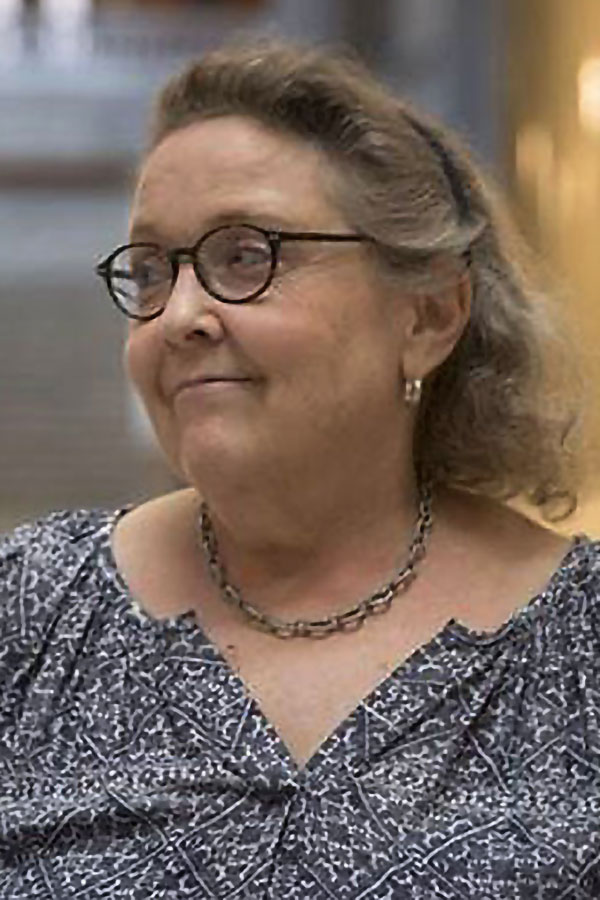Once again, the Kentucky Open Government Coalition celebrates Sunshine Week — March 13-19 — with mixed emotions.
It is, of course, important to acknowledge Sunshine Week and the value of an open, transparent government to the people it serves. “Secrecy is,” as Bill Moyers once declared, “the freedom tyrants dream of.”

Sunshine Week is a national initiative begun in 2005 by the former American Society of News Editors, now the News Leaders Association, to coincide with the birth week of the philosophical Founding Father of sunshine laws, James Madison. It was Madison who famously declared:
“A popular Government, without popular information, or the means of acquiring it, is but a Prologue to a Farce or a Tragedy; or, perhaps both. Knowledge will forever govern ignorance. And a people who mean to be their own Governors must arm themselves with the power which knowledge gives.”
Sunshine Week participants, including nonprofit organizations like the Kentucky Open Government Coalition, celebrate in a variety of ways. This year, the Coalition asked open government advocates from across the state to share their experiences as a vivid reminder to Kentuckians of the importance of the nearly half-century-old laws that protect their right to know that their public servants “are indeed serving the public.”
- Constance Alexander: 3 little words are crushing America’s news literacy
Sadly, these lessons have been forgotten by many of Kentucky’s elected and appointed officials. Perhaps most importantly, these lessons are entirely lost on a majority of the members of our General Assembly. Each year at this time they introduce new measures aimed at undermining Kentucky’s open meetings and open records laws — and limiting the public’s right to know — on the thinnest of pretexts.
The open records legislation passed by the General Assembly in 2021 — in 2022, lawmakers have targeted both the open meetings and open records laws — had adverse consequences that were easily foreseeable, and likely foreseen, by cynical state senators and representatives who no longer bother to give even lip service to the importance of open government.
This includes a 2021 statute excluding nonresidents from using the open records law that has prevented, for example, a U.C. Santa Barbara student from accessing records of the Louisville Metro Police Department for a research project and impeded grieving Colorado parents from accessing records about their son’s death in Kentucky from the Richmond Police Department.
It also includes the 2021 statute excluding the legislative branch of state government — the General Assembly and the Legislative Research Commission — from the open records law. The same law eliminates the right of appeal to the courts in the inevitable records access disputes that have arisen, and will continue to arise, under the absurdly narrow statutory scheme governing access to legislative records.
The Kentucky Open Government Coalition has participated in records access disputes under both new laws. With the legal representation and expertise of attorneys Jon Fleischaker, Michael Abate, and Rick Adams — of Louisville’s Kaplan, Johnson, Abate, & Bird LLP — we are also engaged in litigation that will test the foundational principles of Kentucky’s open government laws.
We know of what we speak.
But we regularly return to the roots of Kentucky’s open government laws to remind ourselves that, at their core, the open records and open meetings laws were enacted for the public’s benefit and that the right of the public to be informed transcends any public agency inconvenience, embarrassment, or loss of “efficiency.”
With this in mind, we turned to citizen and media advocates of the open records and open meetings to share their experiences with the laws.
In anticipation of Sunshine Week, we collected their stories — their testimonials — about the laws. From a newly elected school board member confronting the ostensibly overwhelming forces of the state Superintendents Association to a county official turned state lawmaker who exposed local wrongdoing through records access and was inspired to defend Kentucky’s open government laws during his service to the Commonwealth, their stories are a critical reminder. Please take a moment to read some or all of them. The Coalition will also post two of our guests’ stories each day on our Facebook page during Sunshine Week.
Not all of their stories have a happy ending, but they all begin with a single premise: These records and meetings belong to the public. Public agencies merely hold them in trust.
“The people, in delegating authority, do not give their public servants the right to decide what is good for them to know; the people insist on remaining informed so they may retain control over the instruments they have created.”
These words appear in the Preamble to Kentucky’s open government laws and are echoed in sunshine laws across the United States. Our open records and open meetings laws secure the public trust and must remain robust. When the public’s trust is violated, these laws are the best hope for holding public servants accountable.
We must keep a watchful eye on the legislature and the public agencies which implement Kentucky’s open government laws — as the guest contributors to the Coalition’s Sunshine Week Project have in the past — and send a strong message that we are unwilling to tolerate bureaucratic inertia, yield to legislative overreach, or forfeit our right to know.
(Editor’s Note: Hoptown Chronicle editor Jennifer P. Brown is a co-founder of the Kentucky Open Government Coalition.)






